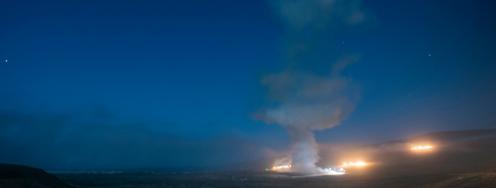Dem Platform Commits to Reducing Stockpiles, Stopping Spread of Nuclear Weapons
On the radar: The nuke platform; For the last time, U.S. is modernizing; No information on Israeli nukes; Buy before you fly; Small signs of reform in DPRK; IAEA Iran report card; and the Shifting timeline for Russia’s new ICBM.
September 4, 2012 | Edited by Benjamin Loehrke and Leah Fae Cochran
DNC nuclear platform - “President Obama and the Democratic Party are committed to preventing the further spread of nuclear weapons and to eventually ridding the planet of these catastrophic weapons,” reads the 2012 Democratic platform.
--On reducing stockpiles: “The President will work with Russia to achieve additional reductions in stockpiles and nuclear delivery vehicles, including tactical and non-deployed nuclear weapons. We will also work to ratify the Comprehensive Test Ban Treaty and seek a new Fissile Material Cut-off Treaty that prohibits the production of fissile materials intended for use in nuclear weapons.”
--On Iran: “President Obama believes that a diplomatic outcome remains the best and most enduring solution. At the same time, he has also made clear that the window for diplomacy will not remain open indefinitely and that all options – including military force – remain on the table.”
--Read the full platform here (pdf). Nukes on pages 58-60. http://bit.ly/R2Gal7
Fact checked - Republican talking points saying that the U.S. is the only nuclear power not modernizing its nuclear stockpile “are wrong and misleading,” writes The Washington Post editorial board. “While the president has said he won’t build new nuclear weapons, the existing arsenal is getting a massive and costly overhaul.”
--Congressional Republicans also gripe that the President did not fulfill a 10-year commitment on nuclear spending. In fact, it was Congress, led by House Republicans, that trimmed nuclear spending. This whole episode is not about anyone reneging on a deal, but rather about how the Congressional budget process works. http://wapo.st/OL47to
Welcome to Early Warning - Subscribe to our morning email or follow us on twitter.
--Have a tip? Email earlywarning@ploughshares.org. Want to support this work? Click here.
No info - Patrick Pexton, ombudsman for the Washington Post fields the frequent reader query of why the Post rarely focuses stories on Israel’s nuclear weapons. He explains that because Israel does not officially acknowledge its nuclear weapons, “the lack of reporting on Israel’s nuclear weapons is real — and frustrating.”
--Besides the country’s official position, Israel’s status as a non-signatory of the NPT forgoes inspections of nuclear facilities and Israeli and US government officials do not leak Israeli nuclear information, Pexton writes. Read the full story here. http://wapo.st/OJMzzU
Deploying the untested - Definition of buy before you fly: All of the GBI missile interceptors “were deployed before their respective type achieved a kill in a test.” George Lewis at Mostly Missile Defense looked at the deployment schedules and test records. http://bit.ly/OPiZ8F
Reforms? - North Korean leader Kim Jong Un might be slowly, subtly preparing the way for economic reforms by shifting his rhetoric to highlighting the economy and introducing small, experimental agricultural reforms, writes Chico Harlan of the Washington Post.
-- “The changes, which allow farmers to keep more of their crops and sell surpluses in the private market, are in the experimental stage and are easily reversible, analysts caution. But even skeptical North Korea watchers say that Kim’s emerging policies and style — and his frank acknowledgment of the country’s economic problems — hint at an economic opening similar to China’s in the late 1970s,” writes Harlan. Full story here. http://wapo.st/OTzQJn
No bite - Mark Hibbs at Foreign Policy reviews elements of the IAEA Director General’s report on the Iran nuclear program released last week and points out that a military strike would also highlight the IAEA’s failure to influence a diplomatic solution.
-- “The IAEA's eleventh-hour meeting with Iran this month testifies to [Director General] Amano's understanding that an Israeli attack on Iran's nuclear installations would be the ultimate vote of no confidence in the IAEA's abilities...The effects of an Israeli attack on Iran's nuclear installations would be profound and devastating, but if an attack happens -- as in 2003 in Iraq -- the IAEA would have little choice but to watch,” writes Hibbs. http://bit.ly/S6DXGF
ICBM- “Russia will build a new heavy intercontinental ballistic missile by 2018, Strategic Missile Forces commander Col. Gen. Sergei Karakayev said on Monday,” according to a story by the Russian news agency Ria Novosoti. Full story here.http://bit.ly/OhliSv
Tweet - @RussianForces: Rocket Forces say new heavy ICBM will be ready in 2018. No more realistic than the earlier estimate - 2016.



